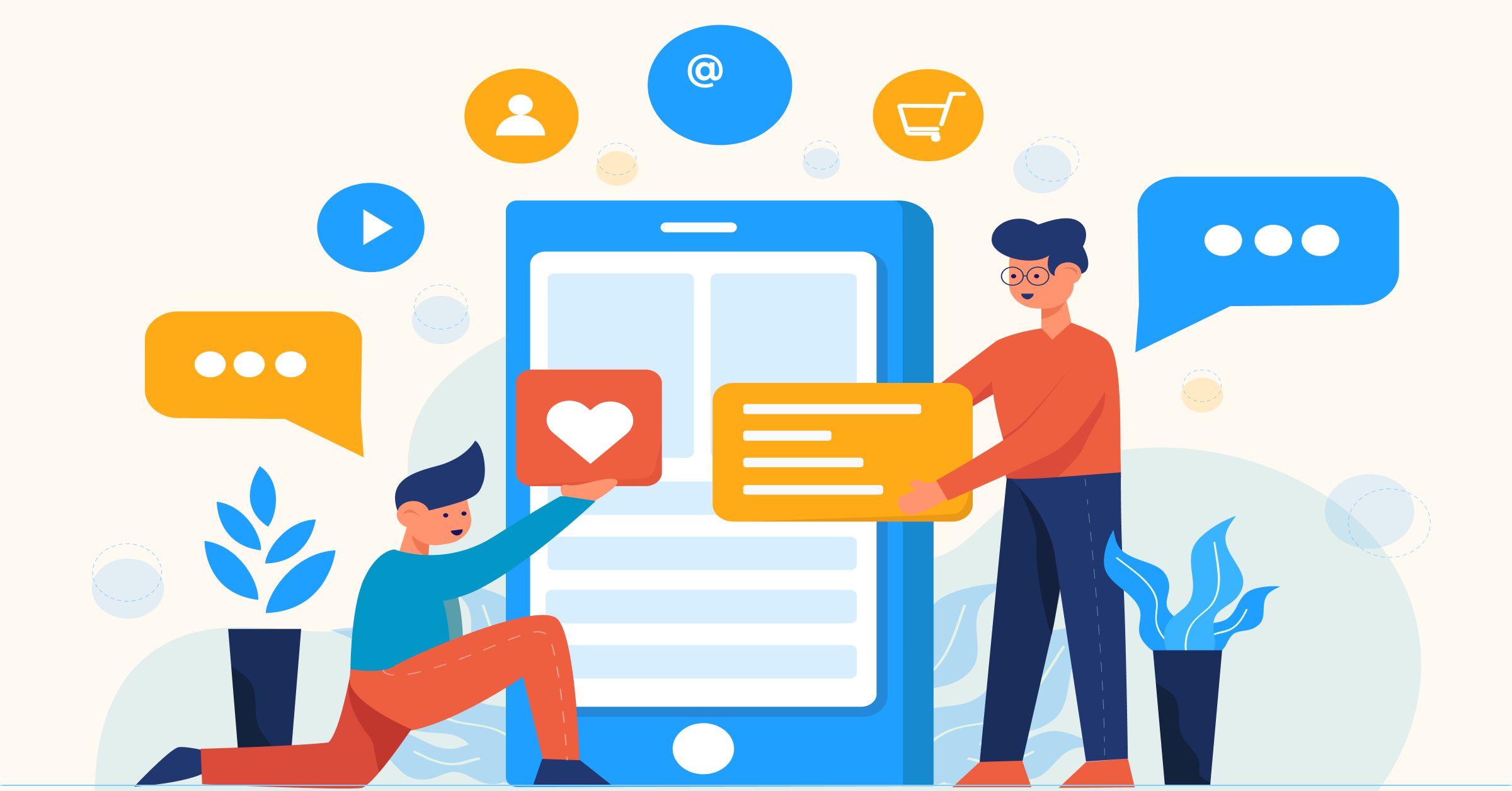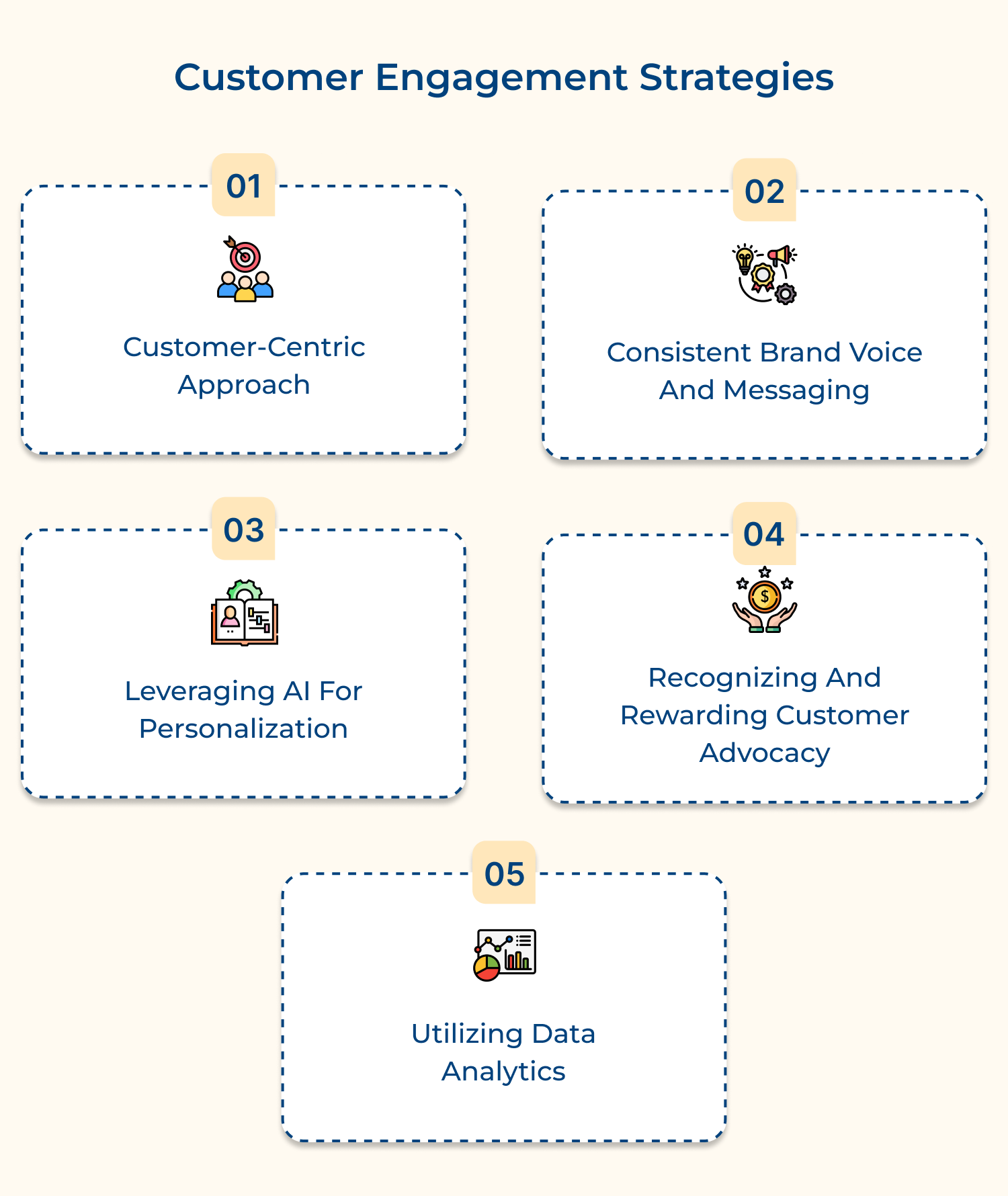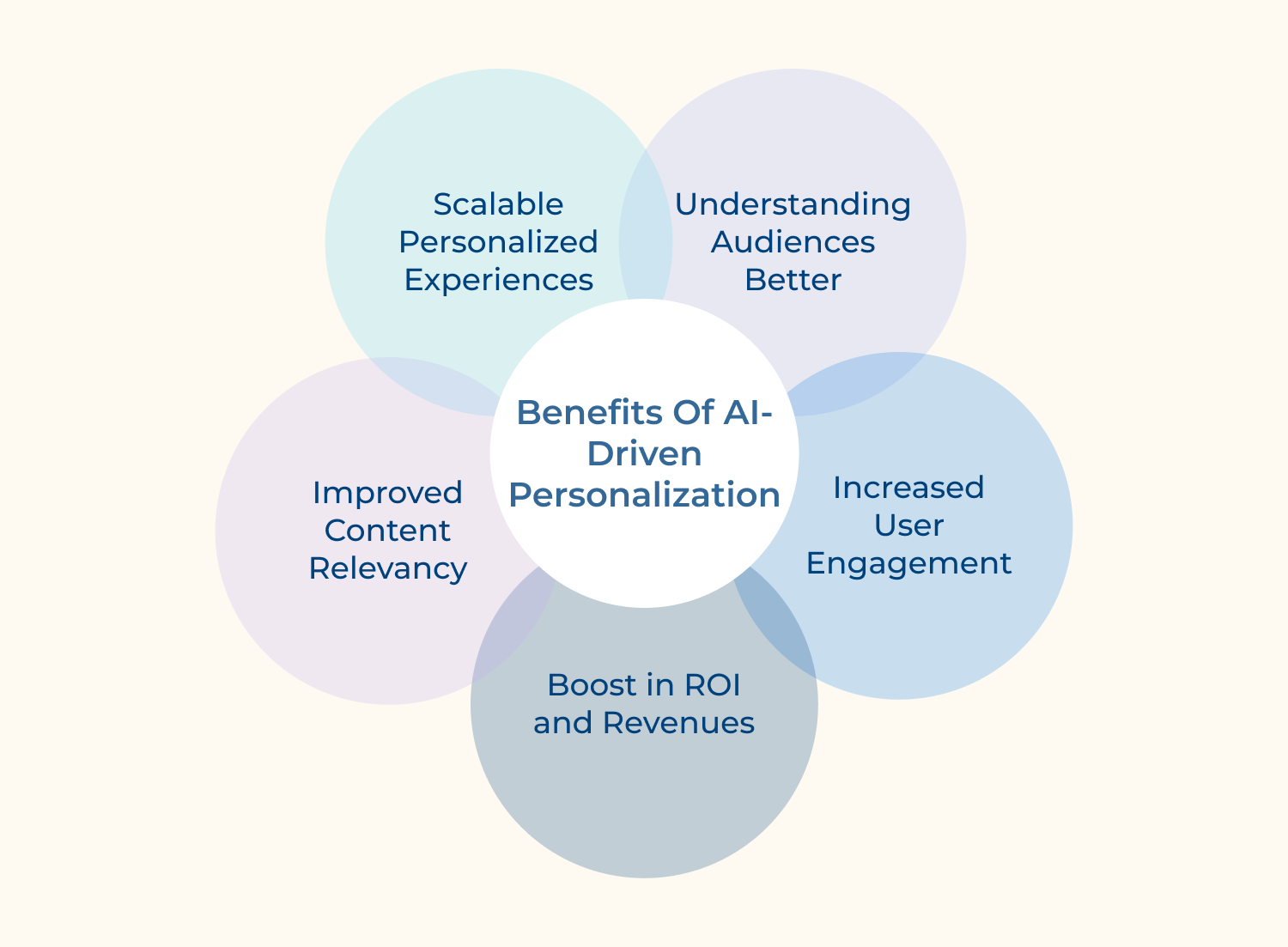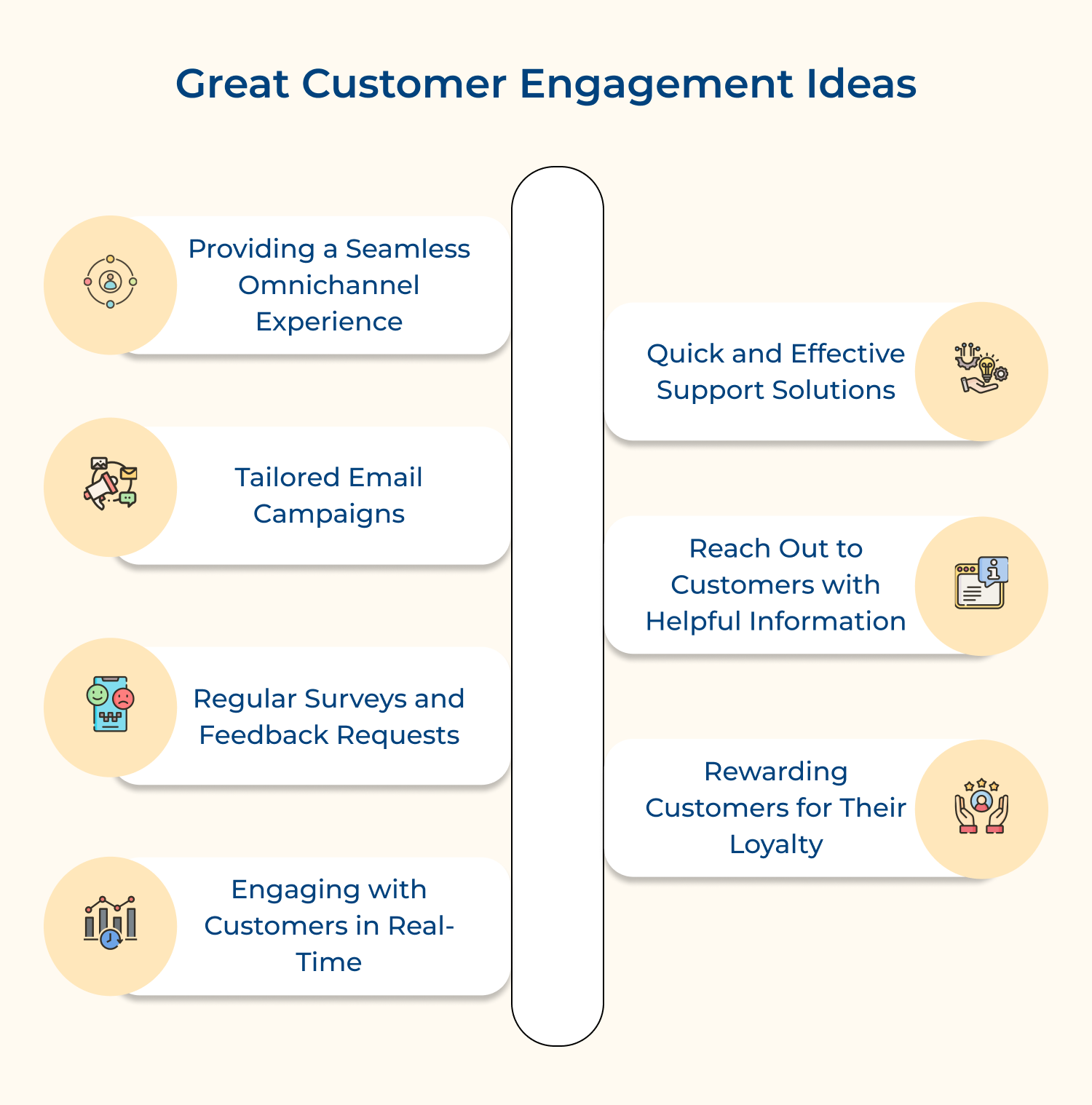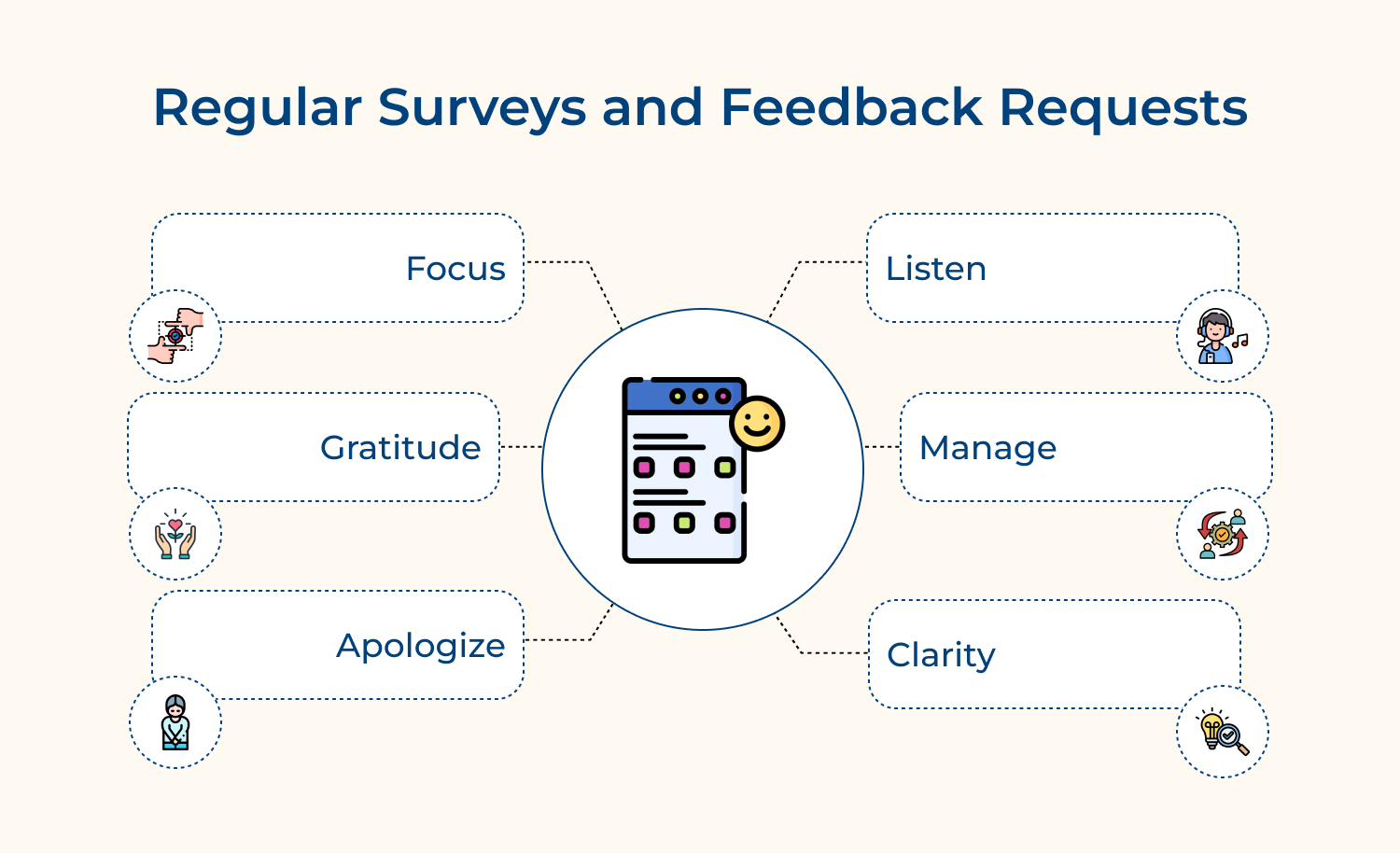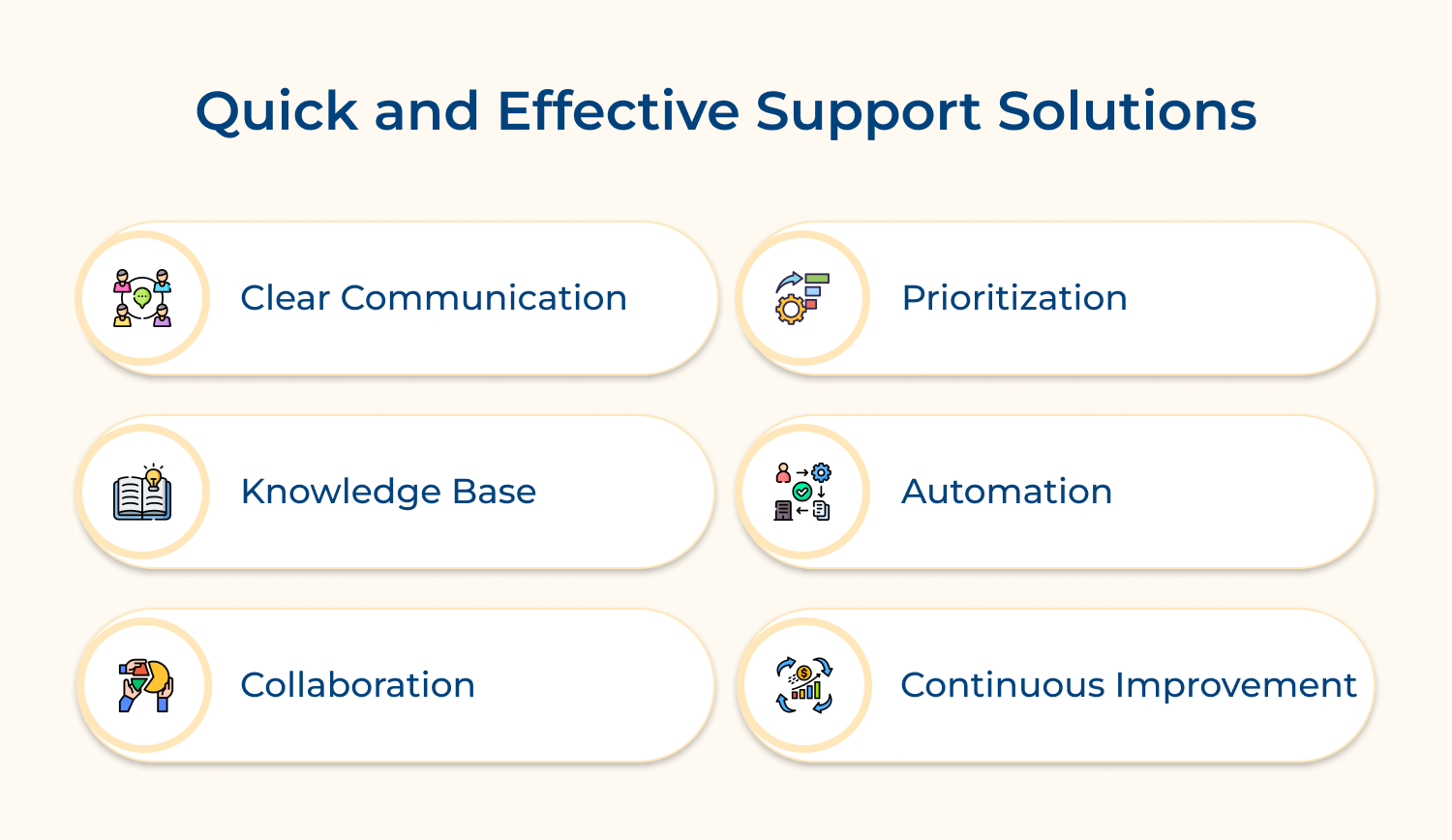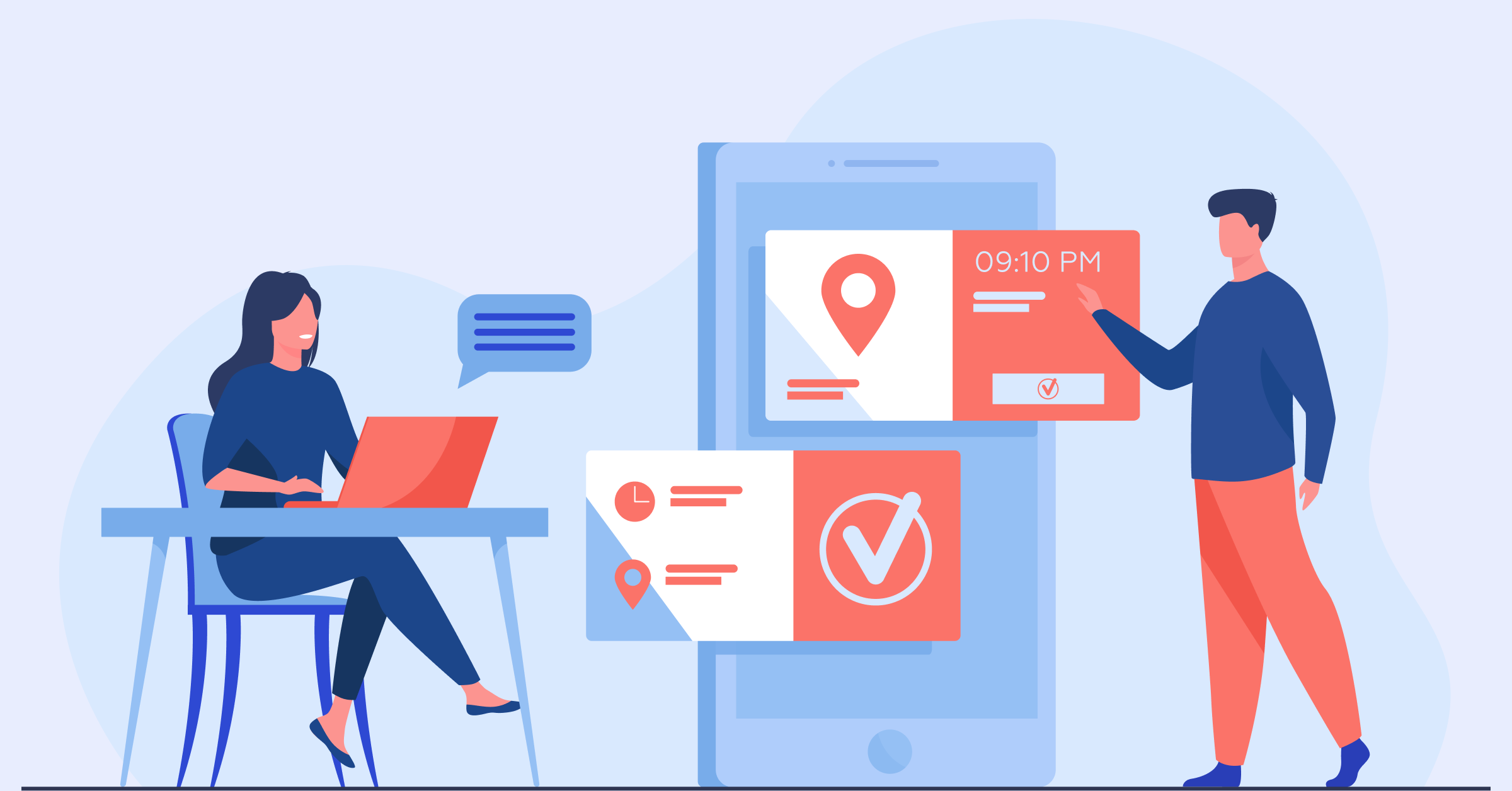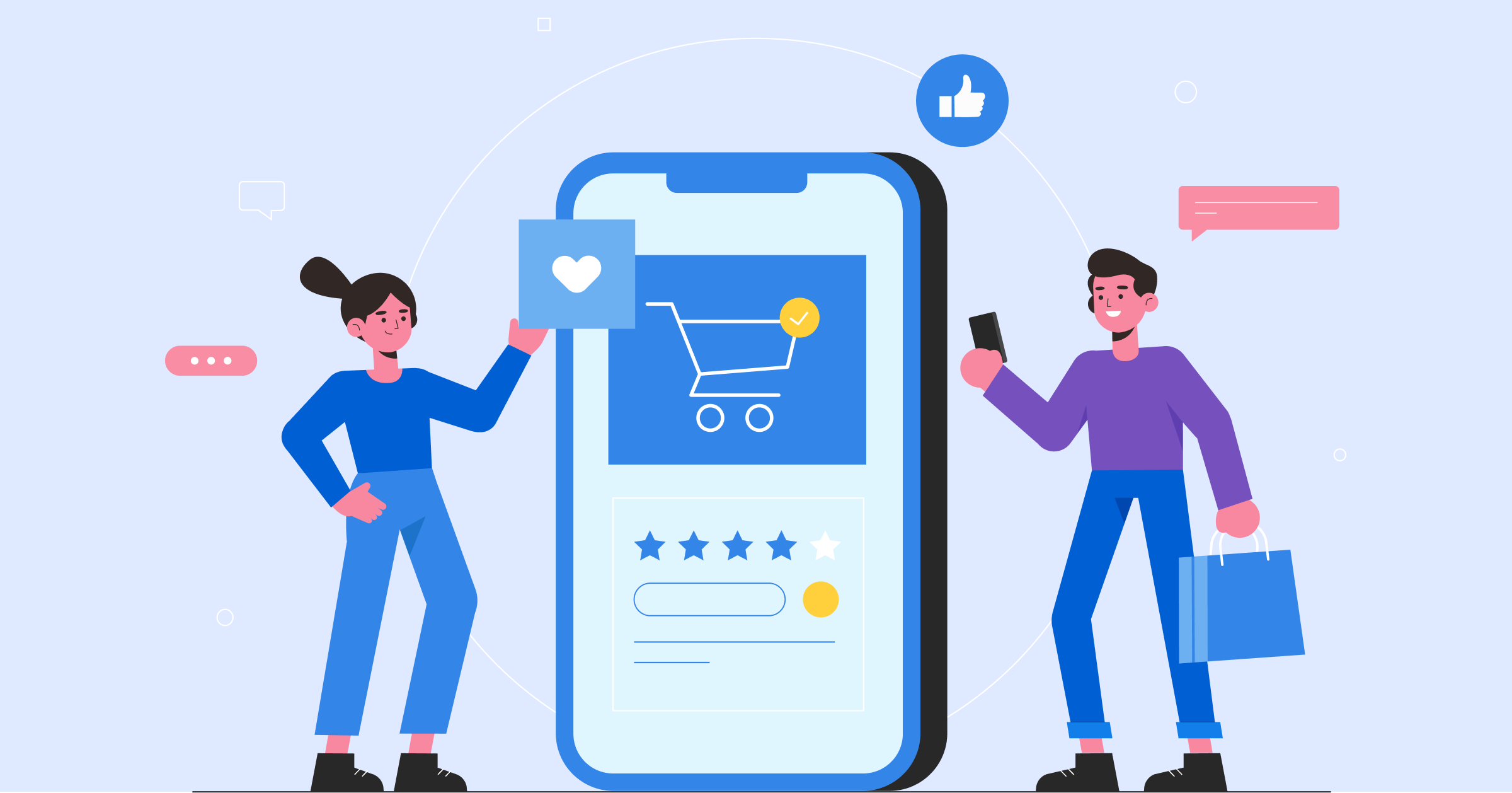Effective support solutions are essential for maintaining customer satisfaction and loyalty. In an era of instant gratification, customers expect fast resolution to their issues.
Efficient support not only solves problems but also demonstrates the company’s commitment to customer care. It can turn potentially negative experiences into positive ones, fostering long-term relationships and positive word-of-mouth.
A multi-tiered support system that includes self-service options, chatbots and human agents. Create a comprehensive knowledge base or FAQ section for common issues, allowing customers to find answers quickly on their own.
Actionable tips:
- Implement a ticketing system that prioritizes issues and tracks resolution times to ensure efficient handling of customer queries.
- Regularly update your knowledge base based on customer feedback and support ticket trends to address evolving customer needs.
6. Reach Out to Customers with Helpful Information
Proactively reaching out to customers with helpful information demonstrates care and adds value beyond the core product or service. It helps educate customers about product features, industry trends or relevant topics, enhancing their overall experience.
The approach positions the brand as a helpful resource or thought leader, strengthening the customer relationship and potentially reducing support inquiries.
Create a content strategy that includes regular newsletters, blog posts, or video content addressing common customer questions or interests. Use customer data to personalize this outreach, sending relevant information based on individual preferences or behavior.
Actionable tips:
- Develop a content calendar that aligns with your product lifecycle, seasonal trends and customer interests to ensure relevant outreach.
- Use segmentation to tailor your helpful content to different customer groups, ensuring maximum relevance and engagement.
7. Rewarding Customers for Their Loyalty
Rewarding customer loyalty is crucial for retention and encouraging repeat business. It shows appreciation for customer commitment and provides tangible benefits for continued engagement with the brand.
Loyalty programs can increase customer lifetime value, encourage higher spending and create brand advocates. They also provide valuable data on customer preferences and behavior. A tiered loyalty program that offers increasing benefits for continued engagement.
It could include points for purchases, exclusive discounts, early access to new products, or special events for top-tier customers. Use the program to gather data on customer preferences and tailor rewards accordingly.
Actionable tips:
- Make earning and redeeming rewards simple and transparent with clear communication about how the program works.
- Regularly update your loyalty program offerings to keep it fresh and aligned with changing customer preferences & business goals.
Real Examples Showing Great Customer Engagement Ideas
Effective customer engagement strategies can transform customer relationships and drive success. Here are real-world examples demonstrating impactful engagement ideas.
1. Amazon – AI-Driven Recommendations
Amazon uses advanced AI algorithms to analyze customer behavior and provide personalized product recommendations. The “Customers who bought this also bought” feature suggests products based on previous purchases and browsing history.
Impact: This personalization boosts sales by increasing the likelihood of additional purchases. Amazon’s recommendation system contributes significantly to its revenue, as it helps customers discover relevant products and enhances their shopping experience.
2. Nike – Engaging Through Digital Platforms
Nike’s Nike+ app combines fitness tracking with social features, allowing users to set goals, track progress and share achievements. The app also offers personalized workout plans and product recommendations based on user activity.
Impact: The app fosters a sense of community and motivates users by providing tailored content as well as rewards. The engagement enhances brand loyalty and drives sales of Nike products, as users are more likely to purchase gear that complements their fitness goals.
3. Uber – Real-Time Updates and Support
Uber provides real-time updates on ride status, including driver location and estimated arrival time. The app also allows users to rate their ride and provide immediate feedback on their experience.
Impact: Real-time updates and transparent communication enhance the user experience by providing reassurance. The level of engagement helps build trust and reliability, leading to higher user satisfaction.
4. Airbnb – Community and Local Experiences
Airbnb offers “Experiences” that allow hosts to provide unique local activities, such as cooking classes or city tours. These experiences are personalized based on user interests and previous bookings, creating a deeper connection to the destination.
Impact: Offering personalized local experiences, Airbnb enhances customer engagement and satisfaction. Travelers feel more connected to their destinations and are likely to return or recommend Airbnb to others, boosting the platform’s growth.
Revolutionizing CX with Innovative Engagement Ideas
Effective customer engagement ideas have a profound impact on business success. By implementing personalized interactions, consistent communication and leveraging innovative technologies, companies can significantly enhance customer satisfaction.
Engaging customers through tailored experiences and proactive support builds stronger relationships as well as drives repeat business. These strategies not only boost brand advocacy but also contribute to sustained growth and profitability.
Embracing these engagement ideas positions businesses to better understand customer needs, ultimately leading to a more loyal customer base and a competitive edge in the market. Prioritizing impactful engagement practices is crucial for long-term success and customer retention.
